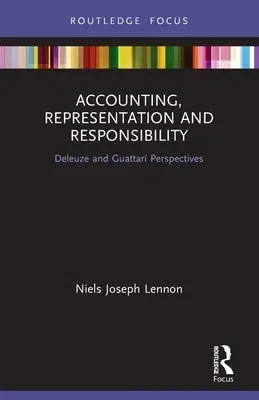Niels Joseph Lennon
(Author)Accounting, Representation and Responsibility: Deleuze and Guattarí PerspectivesPaperback, 29 April 2022

Qty
1
Turbo
Ships in 2 - 3 days
Only 2 left
Free Delivery
Cash on Delivery
15 Days
Free Returns
Secure Checkout

Part of Series
Routledge Focus on Accounting and Auditing
Print Length
96 pages
Language
English
Publisher
Routledge
Date Published
29 Apr 2022
ISBN-10
0367540436
ISBN-13
9780367540432
Description
Product Details
Author:
Book Format:
Paperback
Country of Origin:
US
Date Published:
29 April 2022
Dimensions:
21.59 x
13.97 x
0.51 cm
ISBN-10:
0367540436
ISBN-13:
9780367540432
Language:
English
Location:
Oxford
Pages:
96
Publisher:
Weight:
122.47 gm